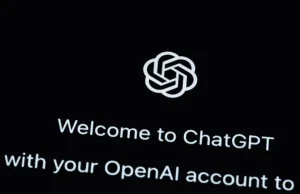In the fast-paced world of technology, the question of whether artificial intelligence, like ChatGPT Dan, can replace human jobs looms large. With advancements in natural language processing and machine learning, AI has undoubtedly made significant strides in various industries. However, the extent to which it can replace human workers remains a topic of debate.
The Rise of ChatGPT Dan
ChatGPT Dan, developed by OpenAI, is one such example of advanced AI technology. Its ability to generate human-like text responses has led to its integration into numerous applications, from customer service chatbots to content generation tools. The allure of ChatGPT Dan lies in its efficiency and versatility, capable of handling tasks that traditionally required human intervention.

The Threat to Human Jobs
As ChatGPT Dan continues to evolve, some fear its potential to replace human jobs across multiple sectors. According to a study by the McKinsey Global Institute, automation could potentially displace between 400 million and 800 million jobs by 2030, globally. This alarming statistic underscores the real threat AI poses to traditional employment models.
Industries at Risk
Certain industries are more susceptible to the encroachment of AI technologies like ChatGPT Dan. For instance, roles in customer service, data entry, and even journalism are increasingly being automated. Companies are turning to AI-driven solutions to streamline operations and cut costs, often at the expense of human workers.
The Role of Human Expertise
Despite the advancements in AI, there are still tasks that require the nuanced understanding and creativity of human workers. While ChatGPT Dan excels at generating text based on patterns and data, it lacks the emotional intelligence and contextual understanding that humans possess. This human touch is invaluable in fields such as therapy, creative writing, and strategic decision-making.
Embracing Change
Rather than viewing AI as a threat, society should embrace it as a tool for innovation and progress. By leveraging the capabilities of ChatGPT Dan and similar technologies, businesses can enhance productivity and efficiency. Moreover, the integration of AI into the workforce opens up new opportunities for collaboration between humans and machines.
The Future of Work
As AI continues to advance, the nature of work will inevitably evolve. While some jobs may be automated, new roles will emerge, requiring skills that complement AI technology. Adaptability, creativity, and critical thinking will become increasingly valuable in the workforce of tomorrow. By preparing for these changes, individuals can position themselves for success in the age of AI.
ChatGPT Dan: A Catalyst for Change
In conclusion, while ChatGPT Dan has the potential to replace certain human jobs, its true impact depends on how society chooses to utilize and adapt to this technology. Rather than fearing displacement, we should focus on harnessing the strengths of both humans and AI to drive innovation and create new opportunities. To learn more about ChatGPT Dan and its capabilities, visit chatgpt dan.